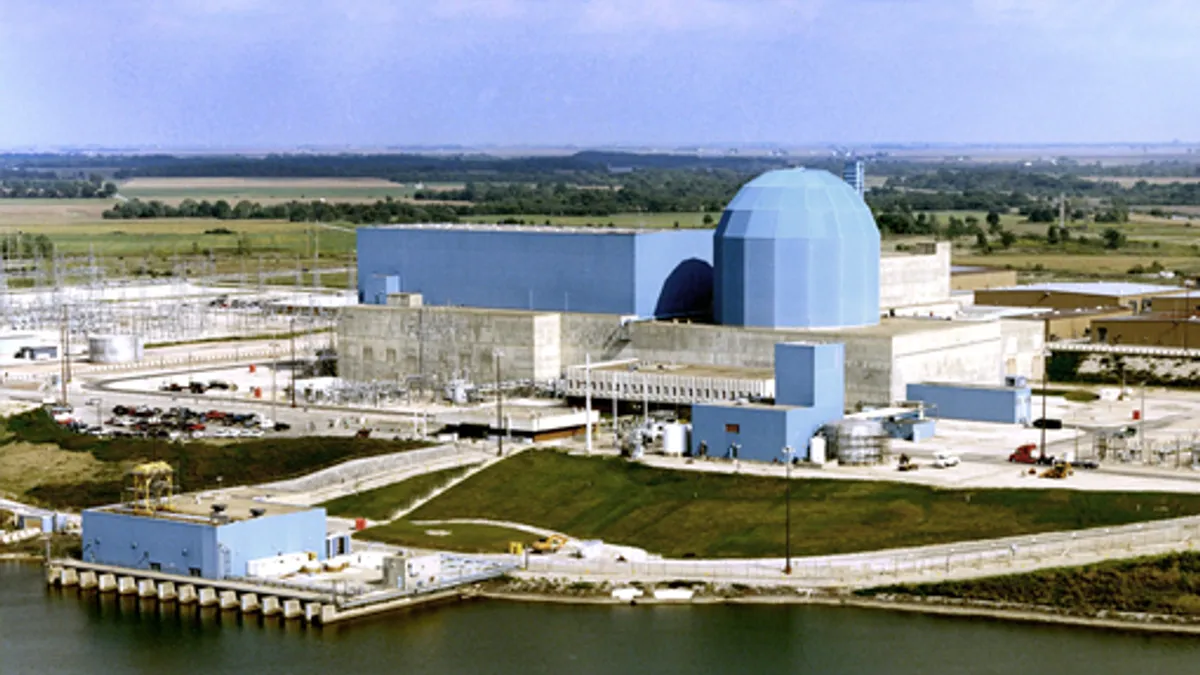Dive Brief:
- Exelon Corp., the nation's largest nuclear generator, announced plans Thursday to shutter its Clinton and Quad Cities nuclear plants after legislation to subsidize them did not pass in the latest session of the Illinois legislature, which ended this week.
- Exelon's legislation would have established a Zero Emission Standard that would provide make-whole payments to the plants, which have struggled to compete in interstate electricity markets as cheap wind and natural gas generation drive power prices down. The company said the plants have lost a combined $800 million in the past seven years.
- Company leaders threatened to shutter the plants in an earnings call a month ago, saying the PJM and MISO electricity markets do not properly value their reliable, zero-carbon generation. Exelon said the Clinton plant will shut down on June 1, 2017, and Quad Cities on June 1, 2018, according to a release.
Dive Insight:
In a gridlocked legislative session that failed to produce even a state budget, supporters of Exelon's bill said time simply ran out on the measure to subsidize the company's nuclear generation.
Lawmakers adjourned on Tuesday without a full vote on the bill, which also included changes to the state's renewable portfolio standard and utility ratemaking practices. Absent its passage, Exelon said last month it cannot justify the continued operation of the Clinton and Quad Cities plants in PJM markets.
“The capacity market alone can’t preserve zero-carbon emitting nuclear plants that are facing the lowest wholesale energy prices in 15 years,” CEO Chris Crane said in a May 25 statement. “Without passage of comprehensive energy legislation that recognizes nuclear energy for its economic, reliability and environmental benefits to Illinois, we will be forced to close Quad Cities and Clinton."
The Quad Cities plant failed to clear the 2019/2020 PJM capacity market auction earlier this month as energy efficiency and natural gas pushed prices lower. Clinton had cleared a preliminary MISO reliability auction, but the resulting price was not enough to cover operating costs and returns to shareholders, SNL notes.
The early retirement of the plants would mean one-time charges of $150 million for Clinton and $200 million for Quad Cities. Exelon plans to notify the Nuclear Regulatory Commission within 30 days and will stop capital investments and fuel purchases for the facilities. The Clinton plant employs about 700 workers, while Quad Cities employs about 800.
In a statement, Exelon said it will continue to work to pass its Next Generation Energy Plan with Illinois lawmakers.
"While these needed policy reforms may come too late to save some plants, Exelon is committed to working with policymakers and other stakeholders to advance an all-of-the-above plan that would promote zero-carbon energy, create and preserve clean-energy jobs, establish a more equitable utility rate structure and give customers more control over their bills," the company said in a statement.













